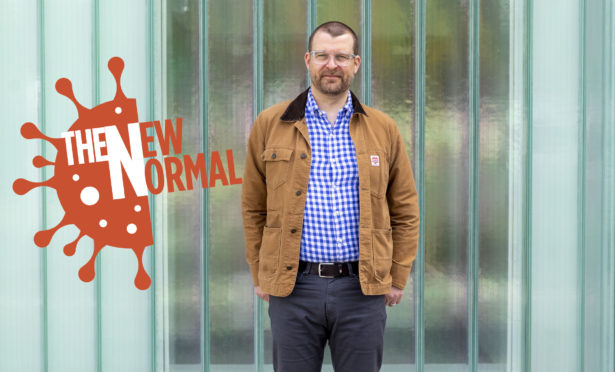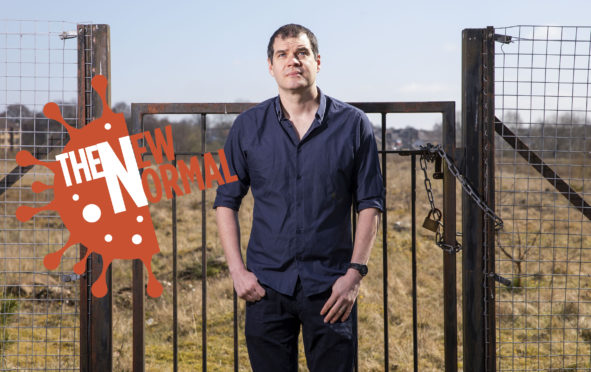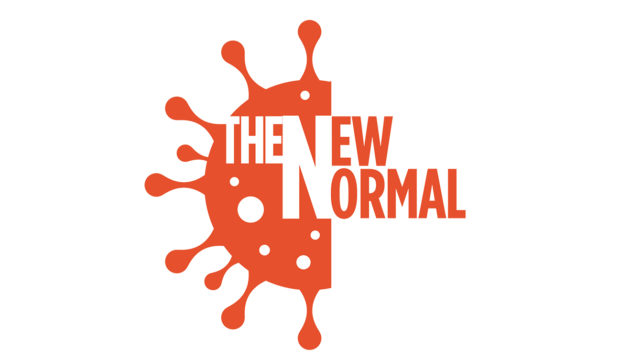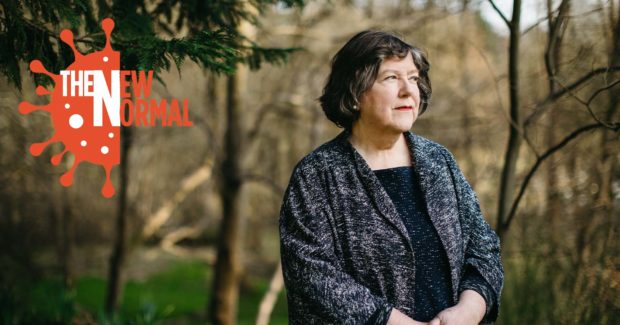
Professor June Andrews is a renowned dementia expert. In 1992, she was appointed head of the Royal College of Nursing in Scotland before returning to practice as a Director of Nursing in the NHS.
She has also been a senior civil servant in the Scottish Government, leading the Centre for Change and Innovation to foster improvement in delivery of health care. She is a Fellow of the Royal College of Nursing, the world’s largest nursing union and professional body and, as professor emeritus, advises the Dementia Services Development Trust.
The first few months of the pandemic showed us what we already knew: we are facing a crisis in care for our growing elderly population.
With preparation for the anticipated influx of Covid patients to hospitals came a tipping out of elderly patients who no longer required medical treatment into care homes; some of those elderly patients were positive and the virus ran amok, claiming many lives.
A degree of buck-passing followed, with much condemnation of the concept of private care homes run for profit. But, June Andrews says, for-profit care homes only exist because the NHS removed itself from the care of older people by shutting geriatric hospitals, and then councils partially removed themselves from care of older people by ceding much of the responsibility to the private sector. Now, the public sector cannot afford to bring all care homes back under its control.
Ever since the Second World War, we have been encouraged to believe the NHS will look after us from cradle to grave. The problem, Andrews says, is that the growing number of elderly people with dementia or other chronic illnesses makes this ideal economically unsustainable.
“Policies that move in the direction of more free care are very popular and welcomed by lots of people when they are announced, but the assumption is it’s going to come from somewhere that is not going to hit any of us financially, and that’s just not possible,” she says.
Her radical suggestion is the introduction of filial responsibility legislation, where families are required by law to take responsibility for their own, with health and social services only stepping in when that proves impossible.
Under the current system, those individuals who have the resources to pay for their own care are expected to do so, even if that means selling their home. But, at the moment, if the parent can’t pay, the children don’t have to. As a result, Andrews says, some families take control of their parents’ assets so they can receive free care (and the assets remain within the family).
“Look-back” by local authorities tracks when parents have transferred assets such as property or capital to avoid paying for care. There is no limit to how far back they can look, and in recent years they have done this even more actively and further back. Yet Andrews claims it is still possible to ring-fence your home and your assets.
“You even get lawyers who are selling people the idea of putting their parents’ property into a trust because then it doesn’t count as something that belongs to the parent. It belongs to the family trust if you do it early enough,” she says. “What the local authority is looking for is evidence that you did this, deliberately, to avoid paying for care.”
Filial responsibility, however, works on the assumption that being a parent has “cost” the older person an amount in their lives, and the children must pay some of that back when it is needed.
In the US, children can be jailed for failing to provide food, clothing, shelter and for the medical needs of their parents and, if your mum or dad is in a nursing home or if an agency is providing care, those organisations can bring legal action against you to recover the money. In Germany, too, the line of responsibility goes up the family tree as well as down, with grandchildren, children and parents all required to provide support to one another. India is one of four countries – along with China, Bangladesh and Singapore – which have enshrined filial responsibility in law. In Singapore, people over 60 can file claims against children for not caring for them; in Bangladesh you may be fined or jailed for failing to pay up.
“The law usually states how much support the children need to provide and it is activated when the parent starts to need to be supported at public expense,” she says. “In those countries children can only avoid it if there’s real evidence their parents abandoned them – there are family courts and tribunals to decide on this.”
Andrews believes filial responsibility legislation would have many advantages, encouraging relatives who currently shy away from discussing such matters to confront the future. It would provide a mechanism to financially compensate those members of a family who even now shoulder most of the caring responsibilities.
“At the moment it’s hard to get families to have difficult discussions, especially about what should happen if frailty and dementia sets in,” Andrews says. “Nor are family members open about what they earn or what savings they have. In many discussions I have with families the parents joke and say: ‘Just shoot me if I get beyond it,’ but in reality, all of us need to have had mature discussions about how we are going to care for parents who become frail or have dementia – are we going to do it ourselves or pay someone else to do it? Or do we assume the state will be there for us?”
It is easy to see how such discussions can quickly become explosive. What happens, for example, if one sibling earns more than the others and resents having to shoulder the bulk of the financial responsibility?
But Andrews, who does consultancy work with families, says these resentments already exist. “I always expect families to want my expertise in dementia, but instead I end up mediating their family tensions.
“An example would be someone telling me, ‘My sister has gone to live abroad but she helicopters in and doesn’t realise my dad has dementia. She is resisting us getting him into a nice care home’ or, ‘My brother lives up the road and never comes and cleans for mum and when I say, ‘We should get a cleaner,’ he says, ‘Don’t waste her money’, but I know he just wants the inheritance’.”
With filial responsibility, these issues would have to be fairly resolved, through a tribunal or family mediation, which could become a thriving industry.
Andrews says some families might take the decision that the lowest-earning sibling should give up work to care for a parent. Is there a danger the burden might fall disproportionately on women?
“It already does,” says Andrews, “but at least there would be a statutory framework and legislation could protect those family care workers by allowing them to be paid from the parents’ capital.”
Of course, there would be families where the parents have been abusive or absent, again a possible role for family courts or special tribunals. And there will be families which lack the income or capacity to make any contribution.
But, Andrews says, with filial responsibility legislation there would be even more support for those people with few resources because “you wouldn’t have affluent people’s parents living in care homes at public expense because the family had been devious enough to relieve their parents of all their goods before they reached the stage of needing care, for example for dementia”.
Legally-binding filial responsibility would open up other conversations, for example about family housing.
“Adult children and parents could be housed in adjacent blocks of flats to ease caring or ancillary living pods in the garden of the house like they have in the US,” Andrews says.
She suggests insurance that parents or children could take out to cover any future care arrangements, saying: “If you gave me 10 years warning that I was going to be financially responsible for my parents I might take out an insurance policy or parents might do so to offset the financial burden on their children.”
The concept of filial responsibility legislation is controversial. As Andrews points out, the policy would have to be announced at least a decade in advance to give families time to prepare and the notion of family duty would have to be culturally embedded through the education system.
But she believes it would be no less popular than tax hikes to fund free care to our increasing elderly population and, in any case, the current system is unsustainable.
“Governments say, ‘Communities have to do more, the third sector has to do more’, but that’s too vague,” she says.
“Although it’s popular for people to imagine they won’t be held responsible for their ageing relatives, that’s just not feasible because of the demographics. The health and social care systems we have were designed for a population that wasn’t like the one we have now.
“With filial responsibility legislation, the NHS, local authorities, communities and the third sector would still be there and take up the slack after those with the family responsibility had done all they could. But this new system would release public resources for those who have inadequate or no family support. It would benefit those with the greatest need.”

Enjoy the convenience of having The Sunday Post delivered as a digital ePaper straight to your smartphone, tablet or computer.
Subscribe for only £5.49 a month and enjoy all the benefits of the printed paper as a digital replica.
Subscribe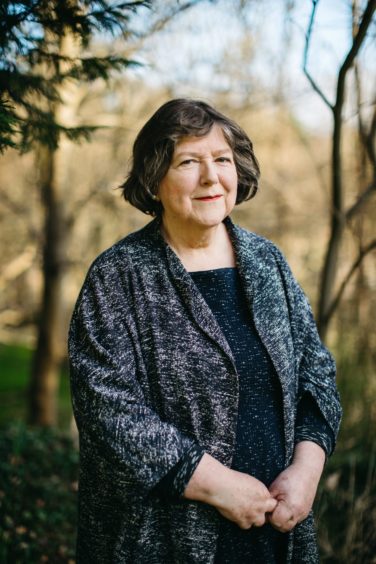 © Andrew Cawley
© Andrew Cawley
